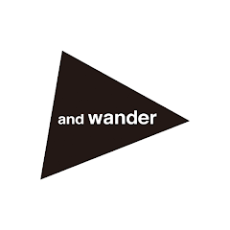2021.03.22
My way and and wander vol.7Emiko Inagaki (Freelance)and wander journal #21
“ある”を集めるのではなく“無い”を楽しむ生き方
若い頃は、お金をいっぱい稼いで、いろんなものを買って、家も豪華なところに住みたい、旅行の時はいいホテルに泊まりたいとか、そういうところを目指していました。ある意味、普通ですよね。でも40歳を目前にしてふと、もうすぐ人生の折り返しだと気づいたんです。山登りでいうと、今がちょうどピークなんだって。それまでの人生では下って行くという発想はなくて、ずっと上りだと思っていた。もっともっと!の人生です。でもここからは否応なく下らなきゃいけない。これまでのような価値観で暮らしていては、以前より稼げなくなったとか、昔はもっといい所に住んでいたとか、そんなことばかり考えてしまいそう。そこで、価値観を変えようと決めました。上昇志向がいい、というこれまでの考え方から、いい感じに落ちぶれていくにはどうすべきか(笑)。
考え方を変えると、お金がなくても楽しめることって、たくさんあるんです。山登りを始めたのもそんなタイミングでした。やってみたらお金を使うレジャーよりもだんぜん楽しい。私は日帰り登山ばかりなので、電車賃あれば1日満喫できる。それから、うちには家電がほとんどないのですが、そういう節電も楽しいからやってるんです。箒と雑巾で掃除をするんですが、そうなるともう、掃除自体がエンターテインメント。「こんなにホコリでました!雑巾、超まっくろ!」みたいに、すごく盛り上がれる。掃除機だとたんなる作業だったものが、楽しみに変わったんです。そういうものを通じて、ものを無くしていくよさに気づいていきました。無い状態だと、自分の頭で考えるし、努力もするし、自分のスペックが上がっていく感じがある。鍋でご飯を炊く、縫い物をする。無いからやる。そうやって挑戦して達成していく過程こそ、人生の楽しみだなあと。だから“無い”をたくさん集めていけば、人生の下山も楽しくなるはずだと思っています。
Enjoying a Life “Without Things” Instead of a Life “With Things”
When I was young, my ideal life was to earn a lot of money, buy many things, live in a luxurious home, and stay at a five-star hotel for vacation. In a way, that’s a normal way of thinking. Then one day, as I was approaching my 40s, I noticed that I was also reaching the halfway point of my life. In a few years, I will be over the hill. Until then, I thought life was an endless uphill and had never imagined that at some point, it would change to a downhill. I was always aiming for more. But eventually, whether I like it or not, I will have no choice but to go down that hill. If I don’t change the way I think about life, I would feel disappointed with myself as I get older and start to think like, “I used to make more money” or “I used to live in a better house.” So, I decided to change my sense of value. My mindset changed from pursuing upward mobility to searching for a comfortable way to sort of “go down in the world”. If you change how you think, you notice that there are plenty of things you can do and enjoy without spending so much money. That was when I started hiking and found it much more enjoyable than other costly activities. I usually go on a day hike, so basically, all I need to pay for is my train fare, and I can enjoy the whole entire day.
Also, there are very few home appliances in my house, but I actually prefer and enjoy this power-saving life. I use a broom and a dust cloth instead of a vacuum cleaner to clean my house and believe it or not, by doing so, house cleaning becomes an entertainment. I would be like, “Look at all this dust! This cloth has turned completely black!” and get all excited. Cleaning my house used to be a dull task, but just by cleaning without a vacuum cleaner, it became a pleasure. Through this experience, I was able to realize that less things could lead to a better life. When you’re in an environment with minimal resources, you start to think with your own head, make effort, and consequently, become more mature. If I don’t have a rice cooker, then I can try cooking rice with a pot. I can try sewing with my own hands. If you don’t have something, you just have to find another way. Now, I believe that this process of challenging and achieving is the real essence of life. In other words, the more I shift to a minimal lifestyle without things, the more enjoyable the downhill of life will be.

and wanderは最後まで残った“ほんのちょっと”
そんな無い無い生活ですから、洋服もほとんど持っていませんし、次々新しいものを買っていく気もありません。そうなると、すべてのものを、ほんとうに気に入っているものだけに厳選しないといけないんです。いま、冷蔵庫もないので、基本的に食事は毎日同じメニュー。でも、それは毎日好きなものを食べているともいえます。本当に好きなもの、必要なものって、ほんのちょっとしかない。それは洋服も一緒です。自分が一番似合うと思っているものを、毎日着ればいいと思っています。たまに「飽きないの?」と言われることもありますが、飽きるってことは、本当に好きじゃないってことなんですよね。もし飽きちゃうようであれば、それは必要じゃないということ。だから、私が持っている洋服は、数としてはものすごく少ないですが、全部大好き。若い頃のように、そこそこ好きな、たくさんのものに囲まれている状態よりも、断然いいと思ってます。
そんななかでand wanderの服が、私の暮らしの“ほんのちょっと”に入っている理由は、着ることができるシチュエーションの幅広さですね。山でも街でもどこで着ていても快適だし、「機能的だから美しい」という、私の好きな「民藝」の世界に通じるものがあると思っています。実は、デザイナーの方と偶然知り合いになったことでこのブランドを知りました。欲を減らして生きていると、必要な出会いはちゃんとやってくる。それを教えてくれた服でもあります。
and wander: An Important Essence of What’s Left in My Life
ISince I live such a minimal life, I only have a few clothes and I’m also not so interested in buying new clothes one after another. So, naturally, I have to select very carefully what I really like and need. I also eat the same meal every day because there’s no refrigerator in my house. But to put it differently, it also means that I’m only eating what I like every day. There are only a few things that you really like or that you really need and that also applies to clothes too. That is why I only wear clothes that I enjoy wearing and feel comfortable in. People sometimes ask me if I don’t get sick of wearing the same clothes every day, but in my opinion, if that is the case, that’s probably not what you truly love. When you get sick of something, your mind is simply telling you that it is unnecessary in your life. The amount of clothes I have may be very limited, but I love them all. My life became completely different from when I was young, when I had many, many things that I thought was nice (but not the best), but I feel much more satisfied now. And wander became a part of my minimal life because it provides great versatility. Not only can I comfortably wear them both in the city and the mountains, but it also incorporates the “beauty of functionality”, which is somewhat similar to another thing I love ― the world of folk handicrafts. In fact, I happened to learn about and wander when I first met the designers of the brand by coincidence. If you don’t wish for so much, you can find your luck and new encounters. It was and wander that taught me this lesson.
EMIKO INAGAKI 稲垣えみ子
Freelance
1965年生まれ。元朝日新聞記者。電気やガスを極力使わない超節電生活で注目を集める。著書に『もうレシピ本はいらない』(マガジンハウス)、『人生はどこでもドア リヨンの14日間』(東洋経済新報社)など。AERA dot.で「アフロ画報」を連載中。
Born in 1965. Former journalist of Asahi Shimbun. Enters the spotlight with the attracting story of her power and gas saving, minimal life. Her works include “Mou Resipibon ha Iranai” (No More Cookbooks), published by Magazine House, Ltd., and “Jinsei ha Dokodemo Doa Liyon no 14 nichikan” (Life is an ‘Anywhere Door’ - 14 Days in Lyon), published by Toyo Keizai Inc. The author of the “Afuro Gahou”, a weekly column posted on the online media, “AERA dot.”
text Takashi Sakurai
photography Rui Kimura
translation Masumi Tokugawa


